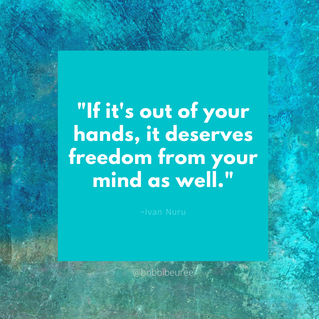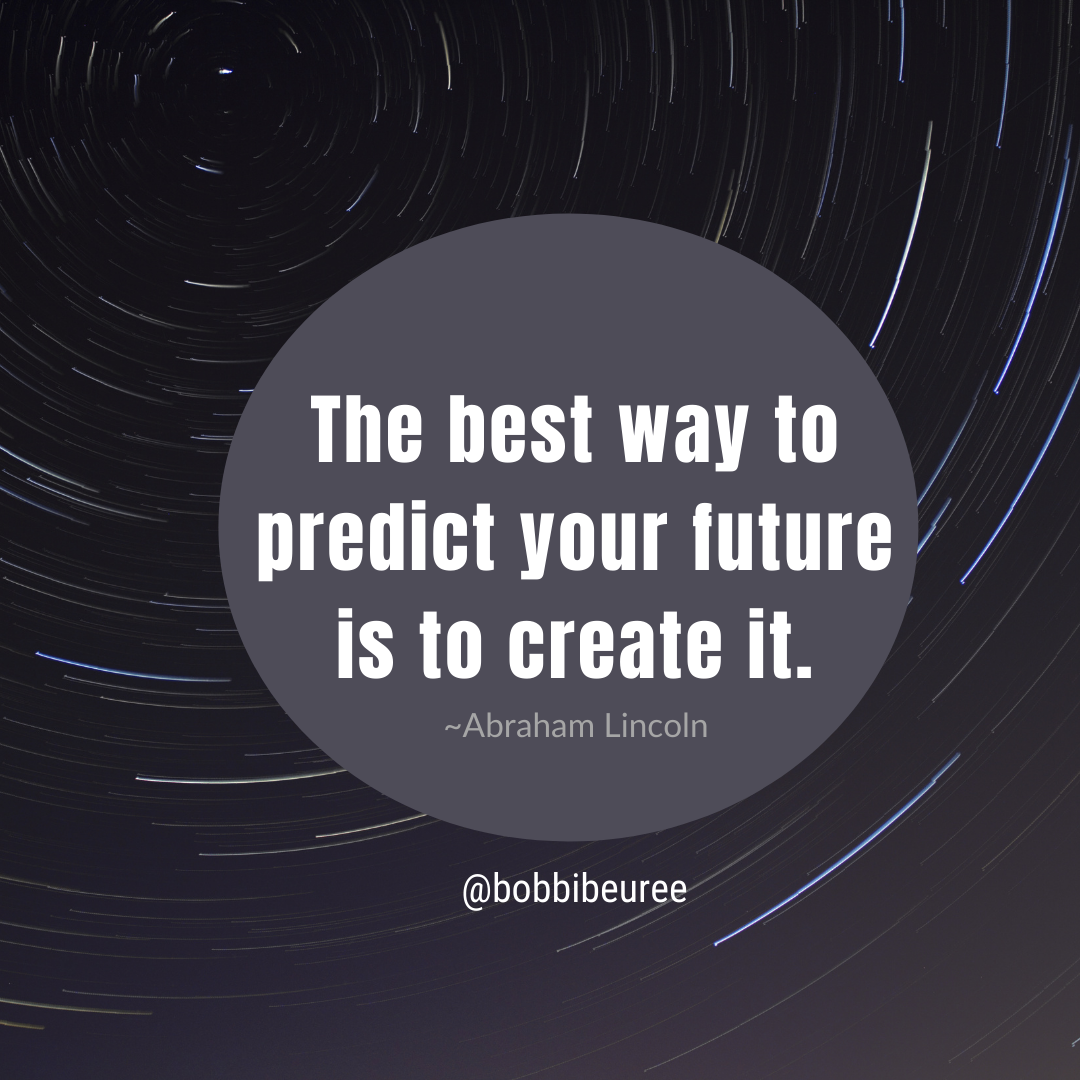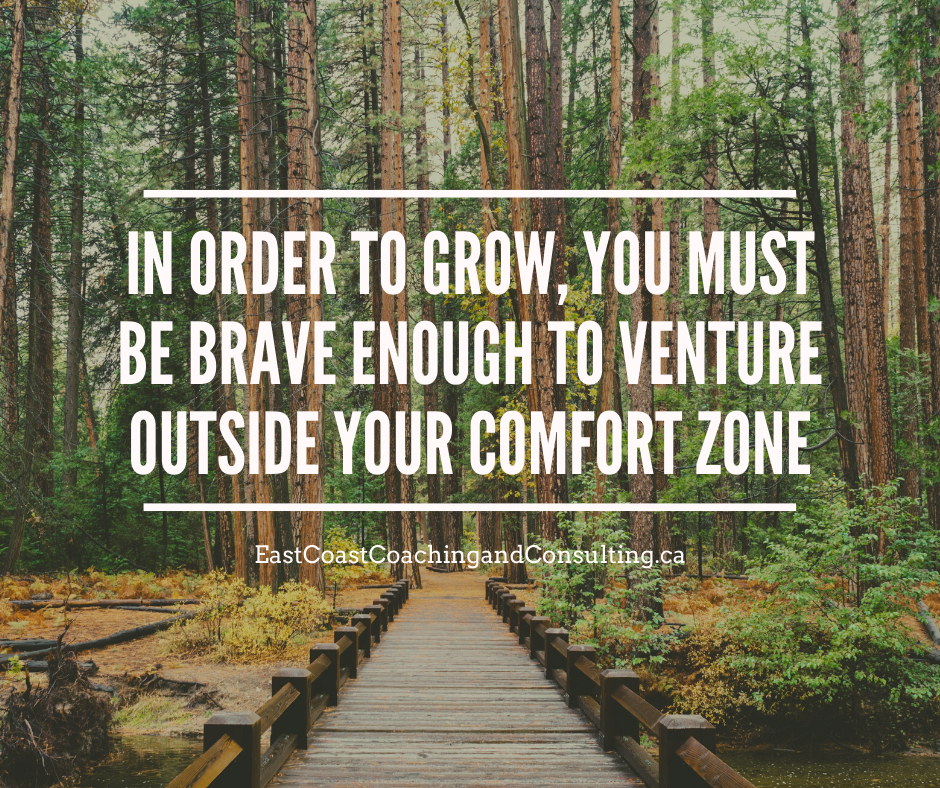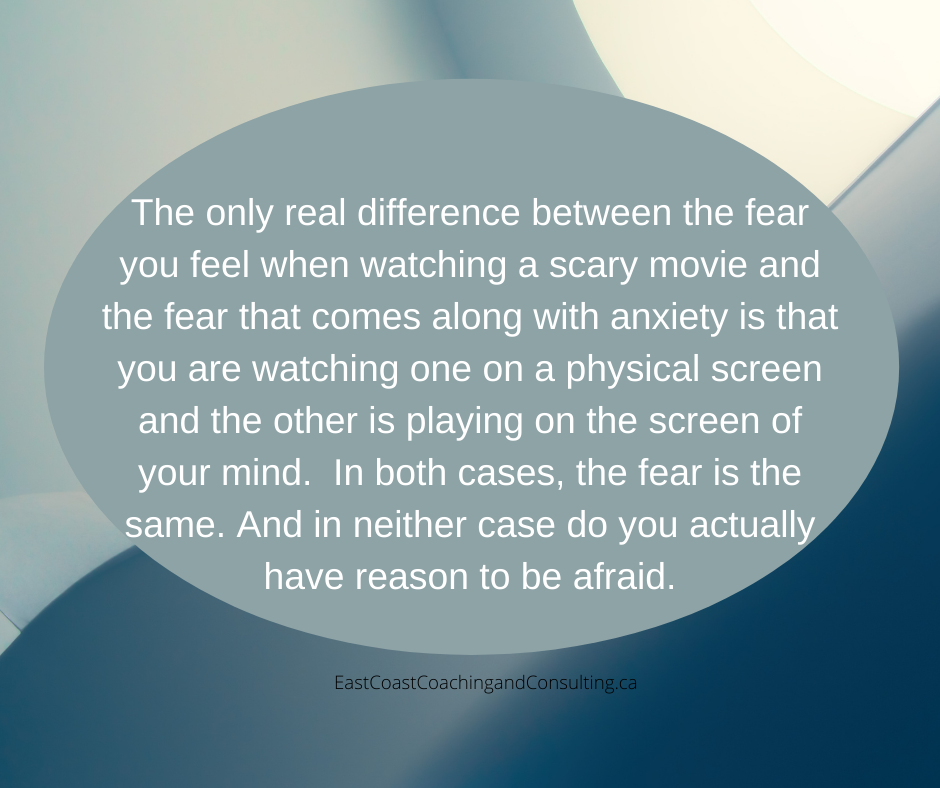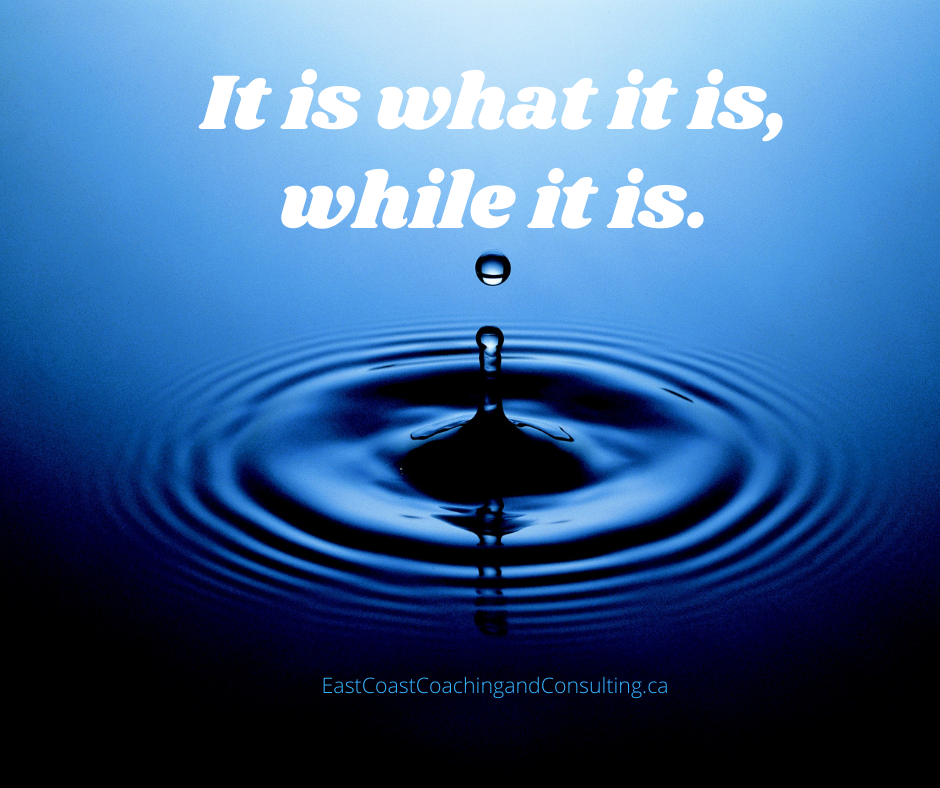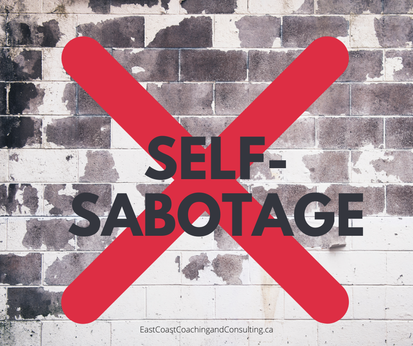|
We're often not aware of the things we're doing that increase worry and anxiety. Habitually and consistently watching the news or mindlessly scrolling social media, for example, takes a toll on us, whether we realize it or not. The more we focus on scary or upsetting things that are beyond our control, it just makes sense that we will feel more anxious. It can make us feel powerless and it puts our nervous system on high alert. It then gets stuck there as worried thinking takes over. Initially, worry was something your mind started doing to try to help you feel more in control and to ease your emotional discomfort. Even if, over time, worry has caused suffering for you, the mind's initial intention was to be helpful and protective. It took on the job of planning, plotting things out, imagining worst-case scenarios – always wanting to feel prepared for what may come. It is constantly looking for a sense of safety, and sometimes worrying meets that need. You’ve given your mind something to do – to dwell and guess what comes next. But your mind can’t figure things out – that’s not possible. The mind is simply pulling from what it knows, what it has conditioned and programmed into it, and adding on some of what is actually going on. It will then start making up stories about what the future holds.
But that would be like saying you are intentionally beating your heart, digesting your food, or healing the cut on your hand. All these things are happening to you, but it’s not because you’re intentionally directing them. It is the exact same thing with worried thinking. It is happening TO you in that it is not a conscious choice. We cause suffering for ourselves when we allow our habit of worry to go unchecked. We rob ourselves of the peace that actually exists in the present moment. And we live out our worst fears in our minds, causing us to experience the very thing we’re worried about, or even terrified of, experiencing.
Worry can range from feeling uncomfortable to being debilitating. If you allow yourself to stay in a state of stress, with stress hormones pumping through your body, it negatively impacts every system that is vital to your health and well-being. And beyond that, you can’t feel love, joy, or a healthy connection with others when your mind is in survival mode. It’s just not possible. People often say that they know it’s not helpful to worry but that they can’t stop. You can! It’s a choice. But that’s not to say it’s not a difficult habit to break. You are pulling away a barrier, a defense mechanism you have likely used for a long time to cope with uncomfortable feelings. Ask yourself, “do I want to continue to let my nervous system be negatively impacted in this way?” When your body is in stress-mode (which is what is happening when you worry), you remain in survival mode. Your body is on high alert, meaning it is unable to move to “Rest + Digest” mode or do all the things that keep us healthy. What can you do when you notice yourself falling into worry? First, try to acknowledge that it is your mind doing what a mind does. Remind yourself that it can't figure out the future. It will just tell scary stories in an effort to prepare you for the worst.
Getting caught up in a cycle of worry keeps us trapped in survival mode and limits our ability to experience positive emotions, like joy, hopefulness, confidence, enthusiasm, and more. Worry is not who you are - it is just a habit that keeps you stuck. You CAN make changes that will allow you to feel more peace of mind and a heightened sense of wellbeing! Learn More about Core-level Coaching AuthorLearn more about Bobbi Beuree, Nova Scotia-based Coach + Facilitator
1 Comment
As a Coach + Facilitator, I am seeing so many people who are completely future-focused, to the extent that it is causing suffering. It would seem that we have collectively convinced ourselves and one another that the future, which exists only in our mind, will be so much better than the present moment. It’s a mind-trap! It keeps our attention and focus trapped on the level of thinking and we’re missing out on fully living our life in the moment.
You can imagine what you might want and how you might feel in this imagined future, based on who you are at this exact moment in time. But that version of “you” in the future will not be the same version of “you” in this moment. You will have gone through things between now and then. You will have gained new insights and will likely have experienced a shift in your core values. You may have different people, different situations, and different priorities in your life. You will have faced challenges and perhaps encountered loss. Everything you know today could change tomorrow - in any one of a million ways.
The mind is trying to be helpful, to provide stability and help you feel prepared to face whatever may come. And to stay safe in the process. That is the main job our mind has – to ensure our survival. But, it can’t possibly imagine who or how you will be next year because it has no idea what you will go through and encounter between now and then. You can remain flexible with what comes your way and practice acceptance for that which is beyond your control. You can venture outside your comfort zone and try new things. You can set an intention on who you want to BE, rather than what you want to do and have, and allow that to act as a guiding force. And you can practice tapping into your emotions. If you are feeling joyful, excited, loving, enthusiastic, or peaceful – it’s a pretty good indication that you’re on the right track. Our emotions can act as messengers. When you experience anxiety and worry, it is a clear message that you are caught up in your thinking and out of the present moment. Return again and again to being present, to gratitude + appreciation, to acceptance, and to living in a way that feels authentic to you.
When your energy and focus is on the future, on wanting what you don’t currently have, it can’t be used to create what you actually want to have, do, and be. Your future self will thank you for taking the time to invest in your present-moment self. Learn More about Core-level Coaching AuthorLearn more about Bobbi Beuree, Nova Scotia-based Coach + Facilitator
We have a tendency to judge ourselves as being "Not Good Enough", which affects our relationship with ourselves, others, and the world around us. It’s an evolutionary thing. We are wired to feel an urge for “more”. This has the potential to be interpreted as being selfish or greedy, but it’s really not. It’s part of being human – that drive is there to ensure your survival. We become discontent with what we have – what is familiar – and feel a pull to seek out something more, something different. If we were to become complacent, we would stop growing, evolving, and experiencing. We would miss out of having a rich + full human experience.
100,000 years ago this ensured our ancestors' survival, and we have inherited that same wiring. Only now, instead of comparing ourselves to small groups, we are connected worldwide. So, of course someone is always going to be doing “better” than you – it is inevitable. But the part of your mind that is doing the judging doesn’t know that. I have heard lack of self-acceptance described as an epidemic and as a Coach I definitely agree. We focus on all that we perceive as wrong or lacking with us and discount all of our wonderful qualities and experiences.
We are here to experience things, to identify our preferences and to CREATE, to draw more to us. But when we are doing it as a way to make us “feel better”, we are going to suffer. Nothing external to us can “make” us feel anything. It’s an inside job. Once you are able to see this more clearly, the messaging that you are Not Good Enough won’t pack quite the same punch. Learn More about Core-level Coaching AuthorLearn more about Bobbi Beuree, Nova Scotia-based Coach + Facilitator But luckily, I was also feeling a deep pull to something I couldn’t quite yet envision but knew, deep down, was waiting for me to discover and explore it. Something I had been feeling pulled to for a long time. So, I took a literal leap of faith. I left the comfort of “stability” – or at least knowing what to expect – and leapt. My final day of work was exactly four months after I had this very simple, and yet very powerful, realization: “I don’t have to do this anymore.” In that moment, I saw clearly that I had been stuck in a story of my own making. I had felt stuck and powerless, telling myself that I needed to earn the exact salary I was making, that what was happening was “unfair” and “wrong”, that I shouldn’t have to be the one to leave, that I had no other options, and on and on. That simple realization – "I don’t have to do this anymore" – shifted something deep inside of me. I looked back at other difficult and painful experiences in my life and realized that each one of them came with their own opportunities to grow and heal. In that moment I saw that there would be a time when I would look back on that terribly difficult three-year period and be grateful for it. Looking back, I saw how much I had to stuff down in order to stay as long as I did. And just as I suspected, I quickly became so grateful that things got as bad as they did. They had to. Otherwise, I would have listened to the stories my mind was telling me and continued to settle. I would have stayed and missed out on the incredible insights and healing I’ve experienced since then. My faith has grown so substantially since taking that terrifying leap. I feel guided by Life and trust that I don’t have to have it all figured out. All the fears my mind told me – “you’ll lose everything!”, “you’ll regret it!”, and on and on turned out not to be true. I continue to be financially independent even though I haven’t had a regular pay cheque in 2.5 years and I have not regretted my decision for even a second. I allow myself to be pulled to opportunities that feel meant for me and release those that do not. I feel like I am in the flow of Life, and I am so grateful that I did not allow fear to hold me back. Just know that your mind will fight to keep you where you are. It wants you safe and safe, to the mind, equals familiar. It will tell you stories, just like mine did, just like all minds do. It will send scary images and sensations. It will convince you that the future is a scary place and that the risk is just not worth it. I am here to say, based on my experiences of Life, that it is. It is worth the uncertainty, worth feeling those scary fears and feelings, and making the change anyway. Where there is fear on one side, just know that there is freedom on the other side. Learn More about Core-level Coaching AuthorLearn more about Bobbi Beuree, Nova Scotia-based Coach + Facilitator
Years ago, I remember a family member saying some version of "don't get your hopes up" when I was excited about a potential job opportunity. And I can bet that I had also said similar messages, both to myself and others at some point in my life. But when I heard that message that particular time, something really clicked in me. I remember thinking, “what’s the worst that can happen? I can get excited, get my hopes up, and I don’t get the job. But at least I would have gotten to experience positive emotions in the meantime.”
Since having that realization years ago, I made a commitment to allow myself to get excited and be hopeful, even if there is a chance that whatever it is that I am excited about may not happen. By "perfect", I don’t mean that in a “positive/all good” kind of way. Instead, when I think of perfect, to me it means that whatever I am experiencing is in perfect alignment with what I am meant to experience in a particular snapshot in time. Even if it is not something I have consciously chosen. Even if it is difficult. It is a deep realization that we often cannot see the big picture to really know what is "good" or "bad" in any given situation.
In this way, you can experience life with a deeper level of clarify, purpose, and enjoyment. You can get excited about the potential of things unfolding without worrying that you’re setting yourself up for disappointment.
Learn More about a Core-level Coaching AuthorLearn more about Bobbi Beuree, Nova Scotia-based Coach + Facilitator
I adopted my dog, Jaz, 12 years ago when she was almost two. She quickly became my constant companion and my #1 priority. We developed a bond unlike anything I had experienced in my life. I learned so much from her during our time together, so I shouldn’t have been surprised that I would continue learning from her even after she passed. And what I've witnessed, more clearly than ever, is that our mind, as well-meaning as it is, often can’t be trusted. And, in fact, contributes to our suffering. In the days leading up to what I feared was the end, I was completely lost in my sadness and feeling every possible emotion. When I went to bed on the day that she passed, as the tears fell, I felt a shift happen. I realized that I could get lost in the pain of losing her in physical form, or I could focus on the love and joy that we shared. I realized that nothing “bad” had happened. She had a beautiful life and a beautiful passing. I realized that by focusing on the love instead of the loss, it would allow me to connect with her in even deeper ways. In that moment, I committed to grieving in a way that honored the love and good times we had. I thought of others who are still hurting years after losing someone. And I knew that I wanted to feel happiness when I thought of her because that is what she brought into my life. I decided that I would not resist any part of the experience and dropped the expectations around how I “should” feel and act. Over the next few days, I started watching my thinking. My mind tried to tell me that the pain would be too much to bear – that I should avoid it. Because of the work I do as a Coach, I knew that if I listened to that thought and avoided what I was feeling it would reinforce in the brain that it is a helpful reaction. That part of your mind is like a machine – it doesn’t reason or see the bigger picture in what is in your best interests. It knows what it has been conditioned to know, what it has had programmed into it. But it doesn’t know what it takes to heal. It just knows what band-aid to stick on to stop the bleeding. I was shocked by the messages that came from my mind in the weeks following her passing. At one point I noticed how clean my house was and how much space there was when I removed her beds, etc. I then watched as my mind jumped in to shame me with thoughts like, “you don’t care, you don’t miss her, you’re glad she’s gone!” I watched as my mind told me all kinds of stories – going in different directions, contradicting itself, encouraging “clinging + grasping”, and trying to dictate how I felt. When I felt sad, lost, and lonely, I let myself feel it, embracing it fully. And when I felt at peace, strong, and optimistic, I let myself feel that too. Even though my mind once again tried to shame me for it. When I had the thought that I was excited to create a new normal, my mind yelled, “Excited?! You didn’t love her! What’s wrong with you?” It made me see why people struggle and suffer so much when it comes to loss or having to let someone or something go. Your mind is trying to make sense of the dramatic change, so it comes up with all kinds of stories. Letting go is so difficult for the mind. It is attached to what is familiar, to the safety and security of what it knows – what is familiar and the routine that goes along with it. It doesn’t know that the situation is beyond your control and that you can’t change it. So, it seems to try to make sense of it all by making up stories, throwing out all kinds of unhelpful suggestions, encouraging you to dwell on it, and making predictions about how you’ll feel in the future (“I’ll never get over this. My heart is broken.”) With practice, you can more easily accept whatever situation you find yourself in, including those of loss. The concept of radical acceptance has been so helpful to me over the years. At times when things are feeling so far out of our control, our natural human tendency is to resist. Our mind will tell us a million stories about why it’s not fair, that it’s terrible, that it shouldn’t be happening, that you can’t handle it, that you’ll never be okay again, and on and on. If we get caught up in that swirling thought-spiral, we are going to suffer twice. We will suffer in the situation that is happening, moment-to-moment, and we will suffer again as our mind replays what is going on, focusing on it, and trying to understand or figure it out. One of the biggest insights I've reached is that it doesn’t have to be sad, beyond the moments of time when sadness is truly the emotion that is coming up. When we listen to the stories our mind tells us that it is “tragic”, “not fair”, “wrong”, etc. we block our healing. When we resist what is, we’re setting ourselves up to suffer. What I saw was that it’s not actually the situation that causes us to feel as though our heart is broken, but our reaction to it. We close our hearts to avoid the emotional pain we are feeling – and that is what hurts. We could be in the exact same situation and if we keep our heart open, focusing on the love we share, allowing the emotions to be there, that pain passes. It’s only when we resist and close up that the pain remains in place. And then our life becomes all about avoiding that pain. So, we keep our heart closed as a way to protect ourselves and not feel discomfort. But that means that our heart is closed to ALL emotions. We can’t selectively choose what we let in and what we keep out. When we’re blocking out emotional pain, we’re also blocking out love, joy, excitement, enthusiasm, hope, and passion. We are so adaptable – when we allow ourselves to be. When our mind doesn’t interfere, telling us all kinds of stories, and encouraging us to avoid any unpleasant, uncomfortable feelings by distracting, numbing, denying, or suppressing. The part of your brain that is sending the signals is like a computer – it’s not the rational, logical, conscious part of your mind that knows what’s good for you. It’s primary objective is your safety and it may think you can’t handle those painful emotions. But you can. You’re meant to. It’s when we resist that the painful emotions stick around and keep bothering and upsetting us. When we resist the urge to avoid and instead, practice allowing whatever it is that we’re experiencing to be there, we make room for healing. We cry, we grieve, we miss and we long for – and it’s all okay. It is when we get caught up in a story of “unfair, wrong, unacceptable or unbearable” that it interferes with the grieving process. This is practicing a deep level of awareness and acceptance. We cannot change what is; we cannot wish for something different, or cling to what was. Your mind will tell you that you can’t do it. Maybe it will even shame you, like mine did – telling you that any time you feel a positive emotion you are doing something wrong, bad, or heartless; that any joy or laughter was somehow a betrayal; that you must not have loved as deeply as you thought if you’re willing to move on “so easily”. Stay open to the love you shared, stay open to feeling your full range of emotions and allowing them to pass. Cherish the memories, be grateful for the time you shared, and take the love forward with you. Make self-compassion and self-nurturing your default setting. And don’t fall into the mind trap of thinking something is “wrong” or “missing”. Keep your heart open. Relax + Release – again and again. I’ll leave you with lyrics from a song that I heard on the day that I let Jaz go. “Just let me hurt a little longer. I'm in a war with no armor. Need to cry an ocean before I’m stronger. Used to think that being brave just meant moving on. Now I sink into the pain until it’s all gone.” Learn More about Core-level Coaching AuthorLearn more about Bobbi Beuree, Nova Scotia-based Coach + Facilitator
One of the biggest contributing factors to people’s unhappiness is the fact that we believe we should always be “happy”. I think we have all fallen into that trap in our lives. And when we’re coming from that mindset, believing that every emotion other than happiness is unacceptable, we are going to suffer. We get the message, over and over again – “be happy!” We even ask ourselves the same question: “What’s wrong with me? I should be happy!” We feel like we can’t be happy until things in our external environment line up with how we believe they should be. The story is different for everyone, but may sound something like:
When, in actuality, it is the stories your mind is telling you about those conditions and situations that is causing you to struggle and suffer. The things we search out in the outer world to “make us happy” are fleeting. They tap into that part of our brain that is focused on survival, that is sending messages that what we have is never enough, demanding “more, more, more!”
As for the methods you’ve used to avoid experiencing difficult things, try not to judge yourself. Whether you have used alcohol or exercise, it is simply a pattern that developed because at some point you, innocently, stumbled upon the realization that whatever it was could change how you felt when you were uncomfortable. It is no reflection on who you are at your core.
Our normal and natural tendency is to resist the experience of difficult emotions. We often react automatically and act in ways to numb, avoid, or distract. But, by learning to embrace our full range of human emotions, we remove so much of the suffering in our lives. When we don’t waste our energy wishing away what is, resisting the experience, ignoring or denying, or otherwise avoiding our emotions, they lose their power. By staying with the emotion, we can listen to the message it is bringing to us. We’re meant to be joyful – excited by life! When we listen to our mind telling us that things are NOT the way we want them to be, it shuts down the possibility for joy and pretty much guarantees that we will suffer.
Emotions are simply an invitation to look deeper – to the thoughts and limiting beliefs that trigger them. Each time we react in a habitual way or catch ourselves getting completely swept up in and overwhelmed by our emotions, it is a clear indication that we are caught up in the stories of our mind and believing them to be true. By practicing the ability to sit with our emotions, we are able to see them more clearly. Allowing yourself to experience uncomfortable emotions shows you that they can’t actually hurt you. You will be able to see more deeply, more clearly, that your emotions are being triggered by your mind, which is simply doing what a mind does. It is attaching meaning where there is none, making assumptions based on past experiences. It is well-meaning in trying to keep you safe, but it is ultimately destructive and limiting.
When we no longer need life, and the people we share it with, to line up perfectly with our inner wants and needs, we are liberated. Learn More about Core-level Coaching AuthorLearn more about Bobbi Beuree, Nova Scotia-based Coach + Facilitator Are Anticipation + Anxiety the Same Thing?
So, there was a tingling feeling of anticipation as 6:30pm approached and then passed. As I waited, the feeling of anticipation grew as each moment ticked by, with me glued to my laptop watching for her to check-in. I checked my phone to see if there was a text or email and ran another pre-call test on the video platform I use to make sure it was working properly. After 20 minutes of this feeling of anticipation ramping up, I sent a message to my client to see if something had come up. It had and she had forgotten about her session. As I read her response, I could feel the energy in my body change and that sense of anticipation completely and immediately dissipated. This experience got me thinking about how we perceive emotions. I realized that what I was experiencing as “anticipation” felt a whole lot like anxiety. When I was going through an extremely challenging situation a few years ago, I experienced a three-month period of heightened anxiety that, at times, bordered on panic. At the time I labeled it as bad and hard and upsetting. This time I reached the realization that my mind was just calling the same sensations by a different name – anticipation instead of anxiety. It was the exact same energy in my body, the same sensations, but this time my mind had labeled it differently, so it completely changed my overall experience of it. It got me thinking about how we, collectively as humans, quite love experiencing a wide range of emotions and sensations. We like surprises – some of us, anyway. We watch scary movies, listen to sad music; we get frustrated and exhilarated by sports. We even seek out things that disgust us, at times. It’s only when our mind tells us a story to explain the sensations we are experiencing that it is labeled as “good” or “bad”. Why is it that we like the feeling of our heart pounding when we're "happy or excited” but worry about it and dislike it when we link it to "anxiety"? It's because we are listening to the story in our mind, that is trying to be helpful and explain to us why we’re feeling as we do. And not just listening, but BELIEVING the thoughts, the story, to be true. Our mind is designed to connect dots and tell stories. And many times, the stories it comes up with are not completely accurate, or even true. But they are very convincing. Our mind is doing the best it can and, ultimately, is looking out for our best interests. But while it is working so hard to keep us safe, it is also keeping us small and stuck. It tells us that anxiety is “bad” and anticipation is “good”, when in truth they are both simply energy moving through us. And that energy will pass – it has to – it’s designed to. Unless we keep it alive with our attention and through our thoughts. So the next time your mind jumps in to explain and label what you’re feeling, maybe try taking a step back and seeing it for what it truly is – simply energy moving through your body. When we can gain this insight, it completely changes our experience of emotions. When we can see that the thoughts that cycle on repeat in our mind are often not true, it also completely changes our experience. *please note that everyone’s experience with emotions, including anxiety, can be very different. The views expressed in this post are based solely on my experience and perspective. Learn More about Core-level Coaching AuthorLearn more about Bobbi Beuree, Nova Scotia-based Coach + Facilitator
And as terrifying as that is, maybe it needs to be that way in order to crumble the broken systems that are currently in place. I know that personally, it's better for me to withdraw my energy by withdrawing my attention from it as much as possible. I have zero control over the situation and focusing on it only causes fear-based thinking and unsettled emotions. So, for those reasons, I am committing to practicing Radical Acceptance - an approach that has gotten me through other very trying times in my life when I had limited control over a situation. It's important to point out that acceptance is not approval – it doesn't mean that: - I will ultimately like or agree with what's happening - I would, deep down, chose for it to be as it is - I don't have hope that things can be different Instead, it means that I am choosing to make space for the thoughts and emotions that are coming up around it, acknowledging that living in such an uncertain time in the world is challenging and potentially upsetting, and then shifting my attention to things over which I actually have some degree of control. I am acknowledging that what I, on a personal level, hope will happen may not be what the world, in a global sense, ultimately needs to happen. And while that is a tough pill to swallow, it’s an important realization to have. It's interesting that it is our natural human tendency to focus on what is wrong, bad, unfair, shocking, etc. That's helpful when it's acting as an actual protective mechanism, but not so helpful in day to day life. It’s important to choose wisely what and to whom you give your attention because we strengthen and energize what we focus on. So what does it come down to? Be the change you want to see in the world. It is as simple as that. Make a conscious choice to stop focusing so much on that which is beyond your control and instead, put the focus on you - on becoming what you ultimately want the world to be. Focus on becoming loving, kind, and joyful - on becoming awake, aware, and connected. Embrace and champion what you want instead of fighting against what you don't want. Acceptance does not mean being weak or "giving in". It is actually powerful in that in allows you to harness your energy to make a difference in the world, instead of using it to complain or argue against what is. People often say, “I can’t stand this,” “This isn’t fair,” “This can’t be true,” and “It shouldn’t be this way.” It’s almost as if we think refusing to accept the truth will keep it from being true, or that accepting means agreeing. Acceptance does not mean agreeing or not moving forward with change if that is possible or preferable. It is acknowledging the reality of what is happening, accepting that it is not within your control, and refocusing on what matters to you. In that way, you can take action in ways that nourish and enrich your life and the lives of the people around you. Again, we need to stop focusing on what we don't want, which is only adding fuel to the fire. On a personal level, I would rather save my energy and invest it in creating within myself what I hope to see more of in the world around me. I choose to invest my energy in the people I love, in being a good Coach + Facilitator to help my clients make positive change, in practicing gratitude for this life, and in continuing to learn, grow, and evolve. We really do have a choice, even if it doesn’t always feel like it. It may initially feel counterproductive to practice acceptance, but the peace of mind that ultimately results is worth navigating through those initial uncomfortable thoughts and emotions that may come up. And the energy that is freed up can help to create the life you want to be living. The world will do what the world will do. The question is, what will you do? Are you feeling stressed about all the uncertainty that is happening in the world right now? Coaching can help! Learn More about Core-level Coaching AuthorLearn more about Bobbi Beuree, Nova Scotia-based Coach + Facilitator
The term self-sabotage makes it seem as though we are making an intentional choice - that we are truly our own worst enemy and consciously limiting, harming, or holding ourselves back. But that's not the case at all. The outward actions that tend to get labeled self-sabotage (i.e., emotionally pushing away a new partner, over-eating, or turning down an opportunity to challenge yourself) seem like "choices" we are making. But what is driving those behaviors is coming from an automatic part of your subconscious mind. Your habits + patterns are not based on conscious choice if you are automatically playing them out in a programmed way.
And while the mind is well-intentioned in trying to keep you just as you are, it is often misguided and holds you back from doing things like making positive change, venturing outside your comfort zone, or taking action on something that may seem intimidating. Your mind needs to make sense of everything in order to help you navigate through this world. So, it looks for patterns, that, when established, allow for "autopilot" reactions. Because the brain uses so much energy, it relies on having programs stored as pathways, so that it can react automatically. It’s important to keep in mind that the first however many times you did the action that eventually turned into a habit – whether it was shopping, drinking alcohol, feeling the need to seek assurance from a partner, biting your nails, worrying, etc. – on some level it was helpful to you. It may or may not have helped you to feel "good", but it likely helped you to avoid strong emotions that may have felt threatening in the moment. The lower brain grasped onto the action as being protective, as providing safety. So the next time you felt uncomfortable feelings rising up, the mind sent an urge to do the action - that thing that distracted you and helped you to feel more comfortable. When you acted on the urge, it reinforced for the brain that it was a “good thing”, that it was helpful. And so, it becomes a cycle - a habit that slides from our conscious awareness. It's so important to note that any habits you have, even those that have turned destructive, even those that you are ashamed or embarrassed of, are not who YOU are. Your habits are not character flaws or personality traits. You're not "weak" or "broken" or any other label you or others may have put on you because of your habit. It’s simply the mind doing exactly what it is designed to do. And will continue to do until we gain a deeper level of insight into what’s truly going on. A key strategy in changing habits is to learn how to gently and compassionately put some distance between "who you are at your core" and "the thoughts that you have". Especially when your thinking is pushing and encouraging you to continue doing your habit, regardless of the cost to your health and well-being. Have you felt pumped for positive change one minute and then find yourself mindlessly doing your habit...scrolling through your phone, binge eating, or criticizing others the next? What have you tried when it comes to gaining control over or changing a habit in your life? Have you used will-power or self-criticism? Maybe you've tried to figure out on an intellectual level why you do what you do and plan how you can stop or change?
For real change to happen, we need a deeper level of self-awareness around why we have the habits we do. When we actively try to control our habits, suppress them, distract from them, or beat up on ourselves because of them, it has the opposite result from what we intended. We actually strengthen and reinforce them just by placing our attention on them. It’s important to keep in mind that whatever we focus on grows in importance in our minds. So, when you are intently focused on your habit, even when you’re trying not to do it, it is still holding your attention. “Will I really be able to stop this time? “I really shouldn’t do it – I know better!” “Why do I keep doing this?!” We feed and fuel our habits in this way – with the energy of our attention - and they continue to grow more powerful. What if instead, when you hear a thought in your mind that encourages you to act on a habit that you have rationally and objectively identified as being harmful or demoralizing to your well-being, you could recognize that it is not coming from “you”? What if you practice recognizing that the thought is coming from a part of your brain that is attempting to keep status quo by maintaining a pattern, that was at one time, helpful? Our true nature, beneath the conditioning and programming, is whole, joyful, open, loving, and free from habit. Anything that contradicts that is a part of your brain that has limited information and lacks awareness, mistakenly thinking it’s keeping you “safe”. That’s a natural and normal part of the process. But, with a deeper level of awareness, instead of criticizing or shaming yourself, you can celebrate the fact that you noticed what was happening and commit to continuing to notice.
Habits don’t develop overnight and they usually don’t change overnight. But, by building your awareness around how and why your habits developed, and learning concrete ways to move past them, you can be free from the habits that have held you back! I’d love to help you gain clarity around what is driving your habits and guide you in developing a new perspective and forming new habits that are energizing and empowering! Learn More about Core-level Coaching AuthorLearn more about Bobbi Beuree, Nova Scotia-based Coach + Facilitator |
AuthorBobbi Beuree, Certified CAN Coach + Facilitator is located Nova Scotia and provides interactive 1:1 coaching services, as well as group coaching events. Archives
March 2024
Blog list: |
- Home
- About
- Connect
- Blog
- Why Coaching?
-
Key Topics
- Stress Management
- Practicing Healthy Self-Care
- Dealing with Difficult Emotions
- Thinking Traps and Limiting Beliefs
- Procrastination and Lack of Motivation
- Gaining Control Over Habits
- Life Direction
- Mindfulness
- Emotional Intelligence
- Self-Management
- Interpersonal Relationships
- Anxiety
- Perfectionism
- Self-Esteem + Self-Confidence


